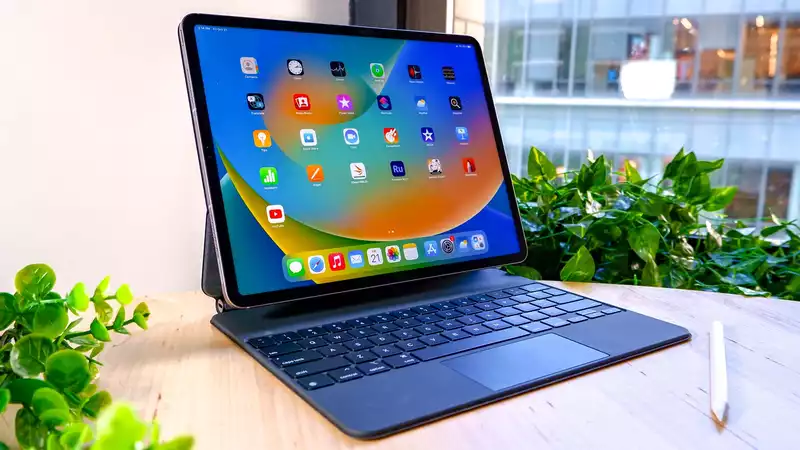Update: OLED upgrade rumored again for 2024 iPad Pro.
We've already heard rumors about the first OLED iPad Pro, and a recent report from Korea's ET News (opens in new tab) claims that these new tablets will debut in 2024.
If you prefer OLED panels on your laptop, the report continues, a MacBook Pro with an OLED display will follow the iPad Pro in 2026.
"The specific panel types are 10.86" and 12.9" for the iPad and 14" and 16" for the MacBook," says ET News." Domestic display companies and related parts and materials companies began developing the panels as the official project began." According to one source, these panels will range in size from 10 to 16 inches.
This report confirms details recently revealed by analyst Ross Young, who predicted that the first OLED iPad would launch in 2024. However, Young said that the iPad Pro will see a minor upgrade in display size, with 11.1-inch and 13-inch displays.
There are also claims that a 14.1-inch iPad Pro is in development, but the ET News report does not mention this jumbo-sized tablet.
It makes sense that the iPad Pro would be the first large Apple device to feature an OLED panel. After all, the 12.9-inch iPad Pro was the first Apple device to feature a mini-LED display, a technology later incorporated into the 14-inch and 16-inch MacBook Pro. So it would not be a big surprise if Apple followed the same pattern with its OLED panels.
The best iPhones, including the latest iPhone 14 series, already have OLED displays, and Apple is no stranger to this technology. However, the proliferation of OLED screens would be a major upgrade for Apple's portfolio, as many devices like the iPad mini and MacBook Air M2 still use regular LCD panels.
One of the main advantages of OLED panels is that they can provide true blacks, richer colors, and better contrast ratios compared to LCDs. This makes them excellent not only for viewing all kinds of things, but also for professional use. However, this panel technology has not yet been widely adopted in notebook computers because it tends to consume more power than LCDS. Nevertheless, Apple's displays could be greatly improved by switching to OLEDs.
Whether OLED panels will improve the mini-LEDs that Apple already offers is another story. Mini LEDs can offer higher brightness and crisper colors, and they have a longer lifespan and no risk of burn-in because they do not use organic components, which are prone to degradation in OLEDs.
There are rumors that Apple may develop micro-LED displays for more products, starting with the future Apple Watch Ultra, so it may be a while before Apple's entire product catalog goes OLED. In addition to keeping an ear to the ground for more rumors, we will have to watch closely to see what Apple has planned for the next few years.










Comments